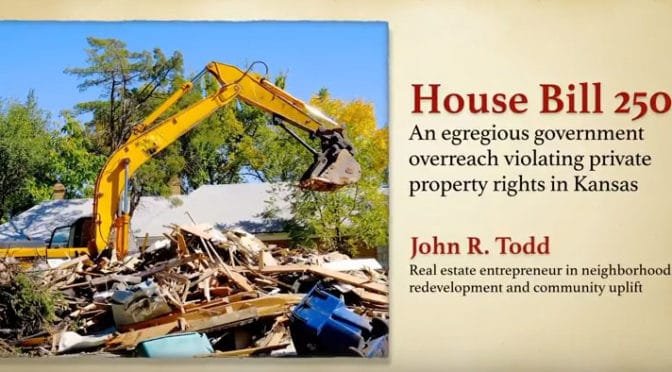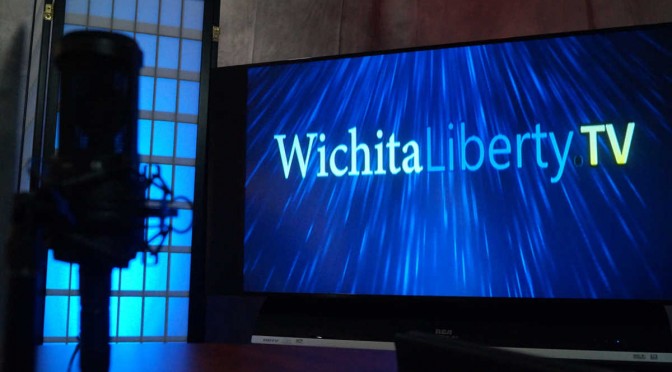Tag: Eminent domain
-

WichitaLiberty.TV: John Todd and the fight against blight
John Todd explains how cities in Kansas are seeking additional power to seize property, and tells us why we should oppose this legislation.
-

Property under attack in Kansas
Local governments in Kansas are again seeking expanded power to seize property.
-

In Kansas, the war on blight continues
Kansas governments are trying — again — to expand their powers to take property to the detriment of one of the fundamental rights of citizens: private property rights.
-

In Wichita, revealing discussion of property rights
Reaction to the veto of a bill in Kansas reveals the instincts of many government officials, which is to grab more power whenever possible.
-
Wichita City Council speaks on blight
Wichita City Council members speak in opposition to Kansas Governor Sam Brownback’s veto of Senate Bill 338, which would have given cities additional power to take property.
-

Governor Brownback steps up for property rights
Senate Bill 338 opens the door for serious abuse in Kansas. Governmental authority to take property from one private citizen and give it to another private citizen should be limited, but this bill would have the effect of expanding such authority without adequate safeguards, wrote Kansas Governor Sam Brownback in his veto message.
-

WichitaLiberty.TV: What the Kansas Legislature should do, and eminent domain
There are things simple and noncontroversial that the Kansas Legislasture should do in its upcoming session, and some things that won’t be easy but are important. Also, a look at eminent domain.
-

WichitaLiberty.TV: Wichita’s blatant waste, Transforming Wichita, and how you can help
Let’s ask that Wichita trim its blatant waste of tax dollars before asking for more. We’ll look back at a program called Transforming Wichita. Then: We need to hold campaigns accountable. I’ll give you examples why, and tell how you can help.
-

Wichita planning results in delay, waste
Wichita plans an ambitious road project that turns out to be too expensive, resulting in continued delays for Wichita drivers and purchases of land that may not be needed.
-
Government planning, itself, is dangerous
In south-central Kansas, the meme of “it’s only a plan” that can be shelved is likely to be repeated as government officials try to sell a comprehensive planning process.
-
Special interests will capture south-central Kansas planning
Special interest groups are likely to co-opt the government planning process started in south-central Kansas as these groups see ways to benefit from the plan. The public choice school of economics and political science has taught us how special interest groups seek favors from government at enormous costs to society, and we will see this…
-
In Kansas, planning will be captured by special interests
The government planning process started in south-central Kansas will likely be captured by special interest groups that see ways to benefit from the plan. The public choice school of economics and political science has taught us how special interest groups seek favors from government at enormous costs to society, and we will see this at…